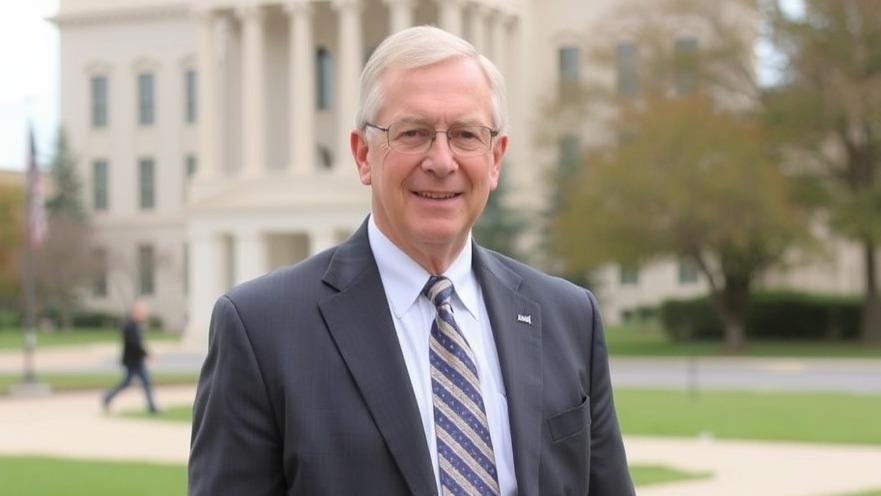
Texas Senate's Shifting Landscape: The Impact of Robert Nichols' Retirement
The Texas Senate is entering a transformative phase following the recent announcement from Senator Robert Nichols, R-Jacksonville, that he will not seek reelection. Nichols, a prominent figure in Texas politics and the most senior Republican in the Senate, will complete his term, ensuring a period of transition that could reshape the political fabric of East Texas. Following his announcement, Representative Trent Ashby, R-Lufkin, officially declared his intention to run for the Senate seat, indicating a potential change in leadership style and priorities.
Nichols: A Uniquely Complex Figure in Texas Politics
Throughout his six terms in office, Nichols has established himself as a distinctive voice within the Republican Party, often breaking ranks for what he believed were principled stands. For instance, last legislative session, he faced backlash from the Texas GOP for his stance on a controversial bill related to public funding for lobbying. Nichols was also one of the few Republicans to oppose private school vouchers and backed an amendment for a rape exception to Texas' stringent abortion restrictions. This willingness to diverge from party lines sets him apart in a space often dominated by rigid adherence to party lines, particularly under the influence of Lt. Gov. Dan Patrick, who has a reputation for strong control over legislative discussions.
Trent Ashby: A New Face for East Texas?
With Nichols stepping aside, the emergence of Trent Ashby, a seasoned political player within the Texas House since 2012, presents an intriguing new narrative. Ashby, who has publicly committed to upholding conservative values and rural concerns, represents the next generation of Texas Republican leadership. His recent contributions in the House, particularly around public education funding and property rights, have positioned him well to be a formidable candidate. In his announcement, he emphasized the need for strong representation to continue advocating for the interests of East Texas, promising to defend conservative values and address the unique challenges facing rural communities.
The Road Ahead: What This Means for Texas Politics
Nichols' retirement is not just a personal decision but marks a broader shift within Texas politics, opening a dialogue on the future of conservative policies in the state. As Texas grapples with issues like border security, public education reforms, and local governance, Ashby's candidacy will be closely watched as a potential bellwether for the direction of Texas governance and political alignment. With critical elections on the horizon, local and state leaders will need to navigate this evolving landscape, ensuring that crucial interests are protected.
Engaging Voters: The Challenge Ahead
With the 2026 elections approaching, both Ashby and other potential candidates will need to engage more actively with their constituents to build trust and support, especially in a time marked by increased political polarization. The race for Nichols' seat will likely focus not only on pressing local issues but also on broader state matters that resonate with voters throughout Texas. Ashby's commitment to maintaining conservative values while also addressing evolving concerns will be crucial to his campaign's success.
Conclusion: A Call for Active Participation
As these political changes unfold, it is more important than ever for the electorate in East Texas to stay informed and engaged. The shifting dynamics of the Texas Senate could influence the region's policies for years to come. Engaging in local political discussions, attending forums, and understanding candidates' positions on critical issues will empower voters, ensuring their voices are heard in this pivotal electoral period.
 Add Element
Add Element  Add Row
Add Row 



 Add Row
Add Row  Add
Add 


Write A Comment